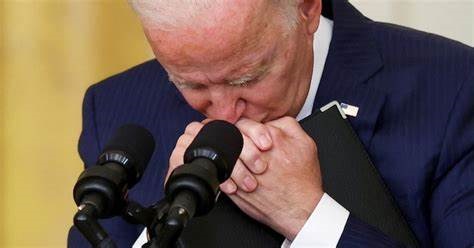Over 100 instances of alleged interference by the US in Hong Kong’s affairs, including President Joe Biden‘s criticism of the country’s media freedom, were listed by China on Friday.
China’s president Xi Jinping remotely addresses the 76th session of the United Nations General Assembly
“The United States must not tolerate any force that is anti-China and stirs troubles in Hong Kong, or else it will only be lifting a stone to hit one’s foot,” Chinese foreign ministry spokesperson Zhao Lijian said at a press briefing.
In the list posted on its website, the ministry accused former US president Donald Trump of interfering in Beijing’s internal affairs, including in the signing of the Hong Kong Autonomy Act in 2020.
Through the act, Mr Trump sought to end Hong Kong’s special status and economic treatment under US law to sanction China for “oppressive actions” against the city.
Under the Trump administration, the US Department of State announced sanctions on four officials of China’s central government and the Hong Kong government for threatening the peace, security and autonomy of Hong Kong, the Chinese government claimed.
Beijing also slammed Mr Biden for “using media freedom as a pretext” and calling the closure of the Apple Daily newspaper in June “a sad day for media freedom” and a signal of “intensified repression by Beijing”.
The Chinese government’s list of “interferences” mentioned a July incident, when the US Department of State website published a joint statement made by 21 countries expressing “strong concerns about the closure of Apple Daily and the arrest of those who are opposed to China and attempt to destabilise Hong Kong”.
“The statement also made groundless accusations against the law enforcement efforts of the HKSAR government [Government of the Hong Kong Special Administrative Region], the Hong Kong National Security Law and the central government’s policy on Hong Kong,” the list said.
Pro-democracy newspaper Apple Daily was forced to shut down after a raid by 500 police officers on its headquarters and after the government froze key assets and bank accounts. Founder Jimmy Lai was sentenced to 14 months in prison for taking part in an anti-government protest in October 2019.
China had strengthened its crackdown on independent media after pro-democracy protests sparked in Hong Kong in 2019.
Beijing passed a national security law for Hong Kong that many critics said curbed freedom of expression and allowed easy prosecution of journalists and activists. Over the past two years, China has expelled several foreign journalists by refusing to renew visas.
The list also mentioned White House speaker Nancy Pelosi and a breakfast meeting she had with The Christian Science Monitor, where she claimed the protests in Hong Kong were “a beautiful sight to behold”.
“She thus openly urged rioters to take illegal and violent actions against the central government and the HKSAR government,” said the list.
Former vice president Mike Pence’s “anti-China speech” and former US secretary of state Mike Pompeo’s statements on Hong Kong too found a place in the list.
Meanwhile, Mr Biden offered a “safe haven” to Hong Kong residents in the US, allowing thousands of people to extend their stay in the country.
(Editor: Michael)


